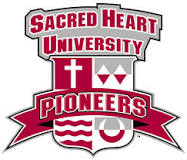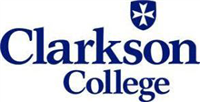What do they do?
Assist patients in obtaining services, understanding policies and making health care decisions.
Also known as:
Access Representative, Admissions Coordinator, Admitting Representative, Case Manager, Medicaid Service Coordinator (MSC), Patient Access Coordinator, Patient Access Specialist, Patient Advocate, Patient Navigator, Patient Registrar, Patient Resource Worker, Patient Service Representative
-
0.7%
Change
Ranks #N/A in job growth rate540Job Openings
Ranks #N/A in net job growth
-
Clarkson College
Omaha, NE
-
Sacred Heart University
Fairfield, CT
-
Ohio State University-Main Campus
Columbus, OH
-
Thomas Jefferson University
Philadelphia, PA
-
University of Missouri-Columbia
Columbia, MO
Looking for colleges that offer a specific major? Use the College Match Tool to find your best-matched schools and discover your estimated Net Price!
- Doctorate or Professional Degree (2%)
- Master's degree (6%)
- Bachelor's degree (22%)
- Associate's degree (16%)
- Some college, no degree (33%)
- High school diploma equivalent (18%)
- Less than high school diploma (3%)
Most Popular Majors that prepare Patient Representatives
-
#1
-
Degrees Granted
6,489
-
Female Students
4,843
-
Male Students
1,646
-
Median Starting Salary
$55,200
-
-
#2
-
Degrees Granted
3,915
-
Female Students
3,053
-
Male Students
862
-
Median Starting Salary
$55,200
-
-
#3
-
Degrees Granted
1,080
-
Female Students
849
-
Male Students
231
-
Median Starting Salary
$55,200
-
-
#4
-
Degrees Granted
375
-
Female Students
266
-
Male Students
109
-
Median Starting Salary
$38,300
-
-
#5
-
Degrees Granted
354
-
Female Students
284
-
Male Students
70
-
Median Starting Salary
$55,200
-
People in this career often have these skills:
- Active Listening - Giving full attention to what other people are saying, taking time to understand the points being made, asking questions as appropriate, and not interrupting at inappropriate times.
- Social Perceptiveness - Being aware of others' reactions and understanding why they react as they do.
- Service Orientation - Actively looking for ways to help people.
- Reading Comprehension - Understanding written sentences and paragraphs in work-related documents.
- Speaking - Talking to others to convey information effectively.
- Coordination - Adjusting actions in relation to others' actions.
- Critical Thinking - Using logic and reasoning to identify the strengths and weaknesses of alternative solutions, conclusions, or approaches to problems.
- Persuasion - Persuading others to change their minds or behavior.
- Time Management - Managing one's own time and the time of others.
People in this career often know a lot about:
- Customer and Personal Service - Knowledge of principles and processes for providing customer and personal services. This includes customer needs assessment, meeting quality standards for services, and evaluation of customer satisfaction.
- Medicine and Dentistry - Knowledge of the information and techniques needed to diagnose and treat human injuries, diseases, and deformities. This includes symptoms, treatment alternatives, drug properties and interactions, and preventive health-care measures.
- Sociology and Anthropology - Knowledge of group behavior and dynamics, societal trends and influences, human migrations, ethnicity, cultures, and their history and origins.
- Administrative - Knowledge of administrative and office procedures and systems such as word processing, managing files and records, stenography and transcription, designing forms, and workplace terminology.
- Psychology - Knowledge of human behavior and performance; individual differences in ability, personality, and interests; learning and motivation; psychological research methods; and the assessment and treatment of behavioral and affective disorders.
- Administration and Management - Knowledge of business and management principles involved in strategic planning, resource allocation, human resources modeling, leadership technique, production methods, and coordination of people and resources.
- Computers and Electronics - Knowledge of circuit boards, processors, chips, electronic equipment, and computer hardware and software, including applications and programming.
People in this career often have talent in:
- Oral Comprehension - The ability to listen to and understand information and ideas presented through spoken words and sentences.
- Oral Expression - The ability to communicate information and ideas in speaking so others will understand.
- Written Comprehension - The ability to read and understand information and ideas presented in writing.
- Written Expression - The ability to communicate information and ideas in writing so others will understand.
- Deductive Reasoning - The ability to apply general rules to specific problems to produce answers that make sense.
- Inductive Reasoning - The ability to combine pieces of information to form general rules or conclusions (includes finding a relationship among seemingly unrelated events).
- Near Vision - The ability to see details at close range (within a few feet of the observer).
- Speech Recognition - The ability to identify and understand the speech of another person.
- Speech Clarity - The ability to speak clearly so others can understand you.
- Problem Sensitivity - The ability to tell when something is wrong or is likely to go wrong. It does not involve solving the problem, only recognizing that there is a problem.
- Information Ordering - The ability to arrange things or actions in a certain order or pattern according to a specific rule or set of rules (e.g., patterns of numbers, letters, words, pictures, mathematical operations).
People in this career often do these activities:
- Coordinate operational activities.
- Interview employees, customers, or others to collect information.
- Refer customers to appropriate personnel.
- Maintain current knowledge related to work activities.
- Explain regulations, policies, or procedures.
- Train personnel.
- Analyze financial information.
- Provide information to coworkers.
- Prepare research or technical reports.
- Prepare informational or reference materials.
- Distribute materials to employees or customers.
- Teach basic living or other adaptive skills to patients or caregivers.
- Instruct patients in the use of assistive equipment.
This page includes data from:

 Occupation statistics: USDOL U.S. Bureau of Labor Statistics Occupational Employment Statistics
Occupation statistics: USDOL U.S. Bureau of Labor Statistics Occupational Employment Statistics









